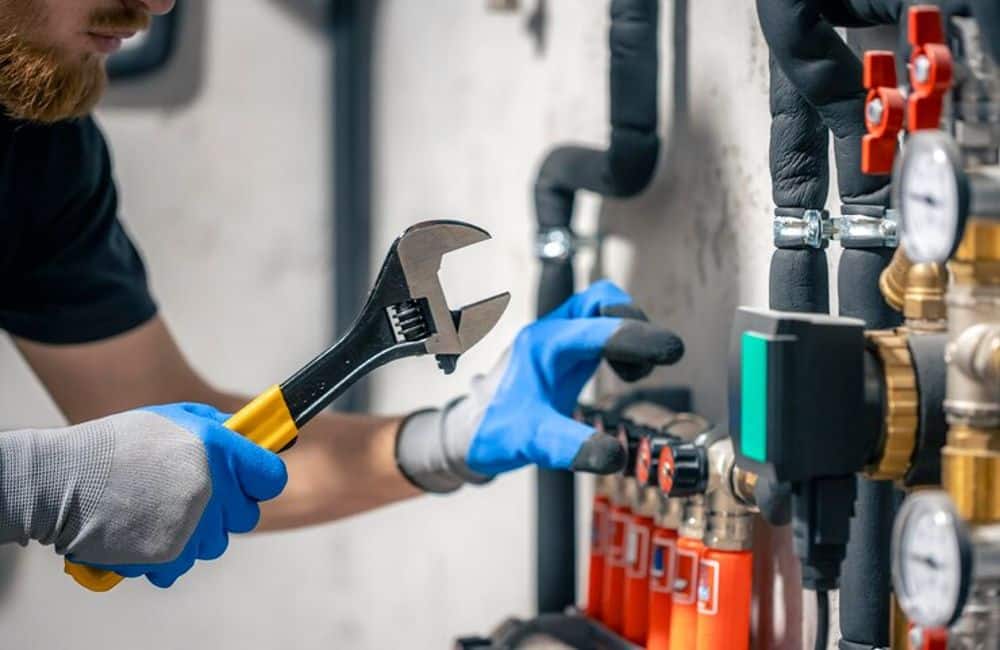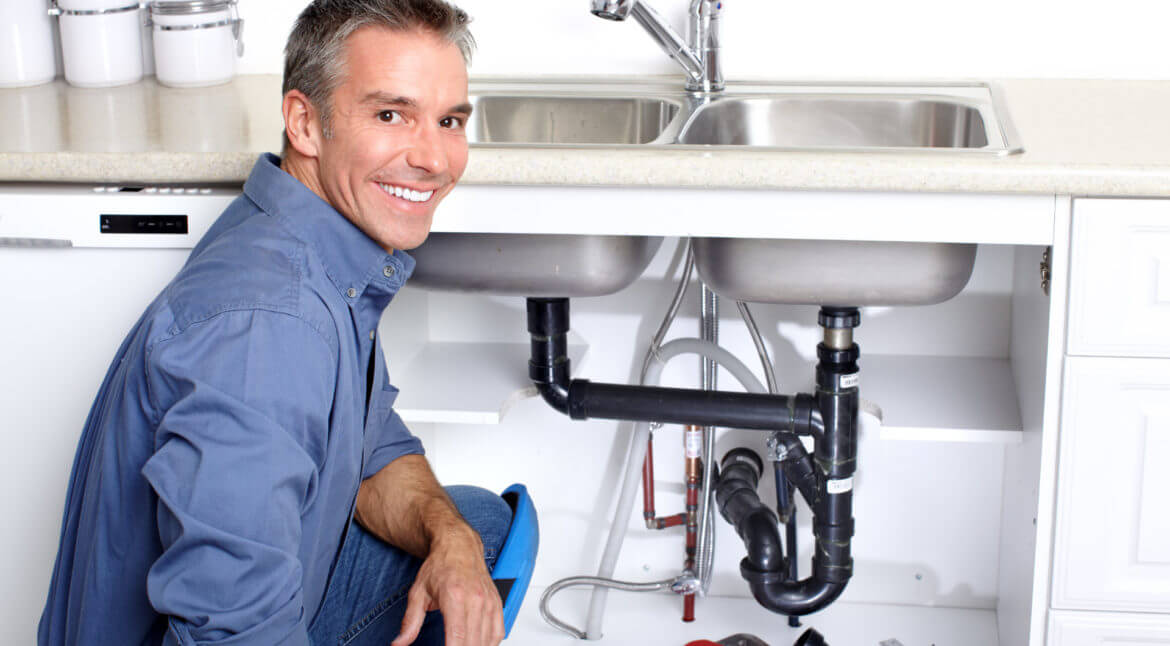We have discovered this great article relating to Plumbing Emergencies: Tips on What To Do Before listed below on the web and concluded it made perfect sense to talk about it with you on this page.

Plumbing emergency situations can strike at any moment, triggering anxiety and possible damages to your home. Whether it's a ruptured pipeline, a blocked drain, or a leaking tap, recognizing how to manage the situation until an expert plumbing technician arrives can conserve you from additional complications. This write-up supplies important emergency situation pipes suggestions to aid you reduce damage and gain back control throughout a pipes situation.
Shut off the Water System
The very first step in any type of plumbing emergency situation is to turn off the water system. For local concerns, such as a dripping tap or commode, turn off the valve near the component. When it comes to a significant leakage or ruptured pipeline, situate your home's primary water shut-off shutoff and transform it off quickly. Knowing the location of these valves beforehand can save important time throughout an emergency situation.
Address Tiny Leakages with Momentary Solutions
Tiny leakages can promptly come to be substantial issues if left untreated. Utilize these momentary repairs till specialist aid gets here:
While these repairs aren't long-term, they can assist decrease water loss and damages.
Unclog Drains Pipes Safely
A clogged up drain can be an irritating and untidy concern. Below's exactly how to tackle it:
If these approaches don't work, stay clear of utilizing extreme pressure, as it might intensify the blockage.
Handle Overflowing Toilets
An overruning commode can trigger immediate disorder. Right here's what you should do:
Turn off Your Water Heater
In specific emergency situations, such as a ruptured pipe, it's smart to shut down your water heater. This prevents overheating or damages to the system when water quits flowing. Shut off the power supply to the hot water heater (electric or gas) and allow it cool off to stay clear of prospective threats.
Briefly Quit a Burst Pipeline
A ruptured pipe can bring about significant water damages in minutes. To alleviate the problem:
Call an expert plumbing professional quickly to address the problem permanently.
Manage Frozen Piping Very Carefully
In cooler environments, icy pipelines are a typical emergency situation. If you presume an icy pipe:
Protect against More Damages
Taking fast activity to minimize damage can conserve you money and time over time. Here's how:
. Have an Emergency Situation Plumbing Package
Prepare a standard plumbing emergency package to handle small problems effectively. Your package must include:
Having these tools accessible can make a substantial difference in your capacity to handle emergencies.
Know When to Call a Specialist.
While quick fixes can assist temporarily, particular plumbing concerns need immediate specialist interest. Call a plumbing technician if:.
Immediately contacting a specialist guarantees the concern is dealt with correctly and stops more issues.
Conclusion.
Pipes emergencies can be frustrating, yet with the right expertise and tools, you can take care of the situation efficiently till help shows up. By turning off the water system, resolving small leaks, and making use of short-term solutions, you can minimize damages and maintain your home safe. Keep in mind, these pointers are temporary options; constantly speak with an accredited plumbing professional to deal with the source of the trouble. Preparation and quick thinking are your finest allies in any kind of plumbing emergency situation.
8 Helpful Tips for Managing Plumbing Emergencies at Home
If your plumbing system hasn’t failed once, wait for it because almost everyone has a story to tell. Sometimes, it could be simple emergencies such as a leaking pipe, a blocked cistern, or even a big burst pipe. In situations like this, you need to have some handy tips to save you some money and from possible damages.
Take care of minor issues early.
Sometimes, you could have avoided an emergency by taking proactive measures while it was still early. Some major plumbing emergencies can be a result of an ignored minor issue. We recommend that you have items like plumbing tapes and other related items. A plumbing tape can allow you to manage minor leaks before the plumber arrives.
Cut off the water supply.
This tip is essential in almost any type of leakage problem. For problems like minor leakages in the toilet or kitchen, turn off the supply that takes water to the affected pipes. If the leakage is a major pipe, you must shut off the supply valve to the entire building. This will help you avoid flooding your home and neighbors if you share a flat.
Know your plumbing system
Folks typically move into a new apartment without understanding the water supply around the building. This can prove disastrous if a water emergency arises and the plumber is far away. The previous tip will prove useless if you don’t practice this one. More importantly, know where your water shut-off valve is located – you’ll need that knowledge to prevent potential home floods.
Have some common handy tools
There are lots of plumbing emergencies that you can handle without hiring a plumber. That’s why you must keep some tools available always. Some tools that you can use to fix simple plumbing emergencies easily include plumbing tapes, screwdrivers, thread seal tapes, plungers, pliers, tape measures, and rubber gloves.
Insulate your pipes from cold
You’ll save yourself from many plumbing expenses if you protect your water pipes from the cold. This is because of the harmful effects that cold weather can have on your pipes. During winter, your pipes can burst from being overly expected to freezing temperatures. So, make sure insulators are there to keep the pipes working correctly.
Avoid practices that will clog your toilet.
Many people indulge in practices that can damage the plumbing system of the entire building. One of these is when they use their toilet to dispose-off garbage. They flush all kinds of things, such as paper towels, bandages, hairs, female sanitary products, etc., down the toilet. This will block your toilet in the long run, incurring unnecessary expenditures. Dump such waste in the trash instead.
Check your dials regularly.
Sometimes, there could be leakages in your home without noticing them in time. So, constantly monitor your water meter dial. If the dial is reading when there is nobody using water, this is an indicator that there is leaking. Check for leaks immediately. Call a plumber as soon as possible if you can’t find any.
https://www.constructionplacements.com/8-helpful-tips-for-managing-plumbing-emergencies-at-home/

I was brought to that report on through a friend on a different website. You should take a moment to promote this blog posting if you enjoyed it. We cherish reading our article about Expert Tips for Managing a Plumbing Emergency Until Help Arrives.
Schedule Service Pickup